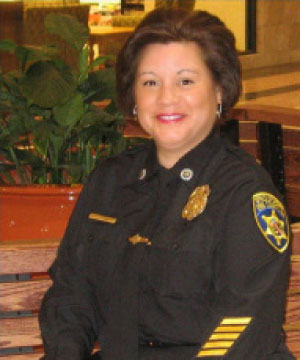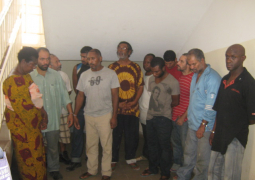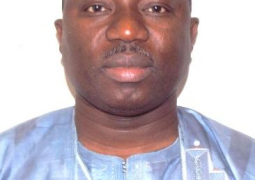
Local journalists in the country recently benefited from a lecture on how to report human trafficking issues, as well as fight against it.
A visiting US fellow, Deputy Elizabet Fildes, program Director for Human Trafficking from the Erie County (New York) Sheriff’s Office, conducted the training session.
She is on a week-long training tour on Pedophilia in the country sponsored by the American Embassy in Banjul. The identification and prevention of child sex abuse and proper reporting and treatment methods for victims are also topics she n treated.
Speaking to the press, the Erie County program director said that, most of the time, the victims involved in human trafficking do not not know what it is.
She indicated that the media, law enforcement agencies and others have a great role to play in preventing the danger.
“It is not just to learn about it, but to report about it and to teach everybody in their communities,” she said.
Deputy Elizabet Fildes asserted that human trafficking is something that must be talked about in society for the victims to get justice, adding that if people keep silent on this matter, more people will be coming to take advantage of our children.
“We must talk about it in the media,” she added, further stating that when it is talked about we should highlight the perpetrators and not the victims.
Ms Fildes underscored the key roles in which media should play. She advised journalists to use masking techniques to avoid revealing the identities of victims, as well as not to sensationalize the story.
According to her, when someone is victimized, it is not a proper time to interview or take pictures of the person, further advising the media practitioners to avoid asking traumatic questions.
She emphasized, among others, the need for media outlets to cooperate with the police in investigations where they are able, as well as to give equal access, provide prevention and tell the community what is really happening.



